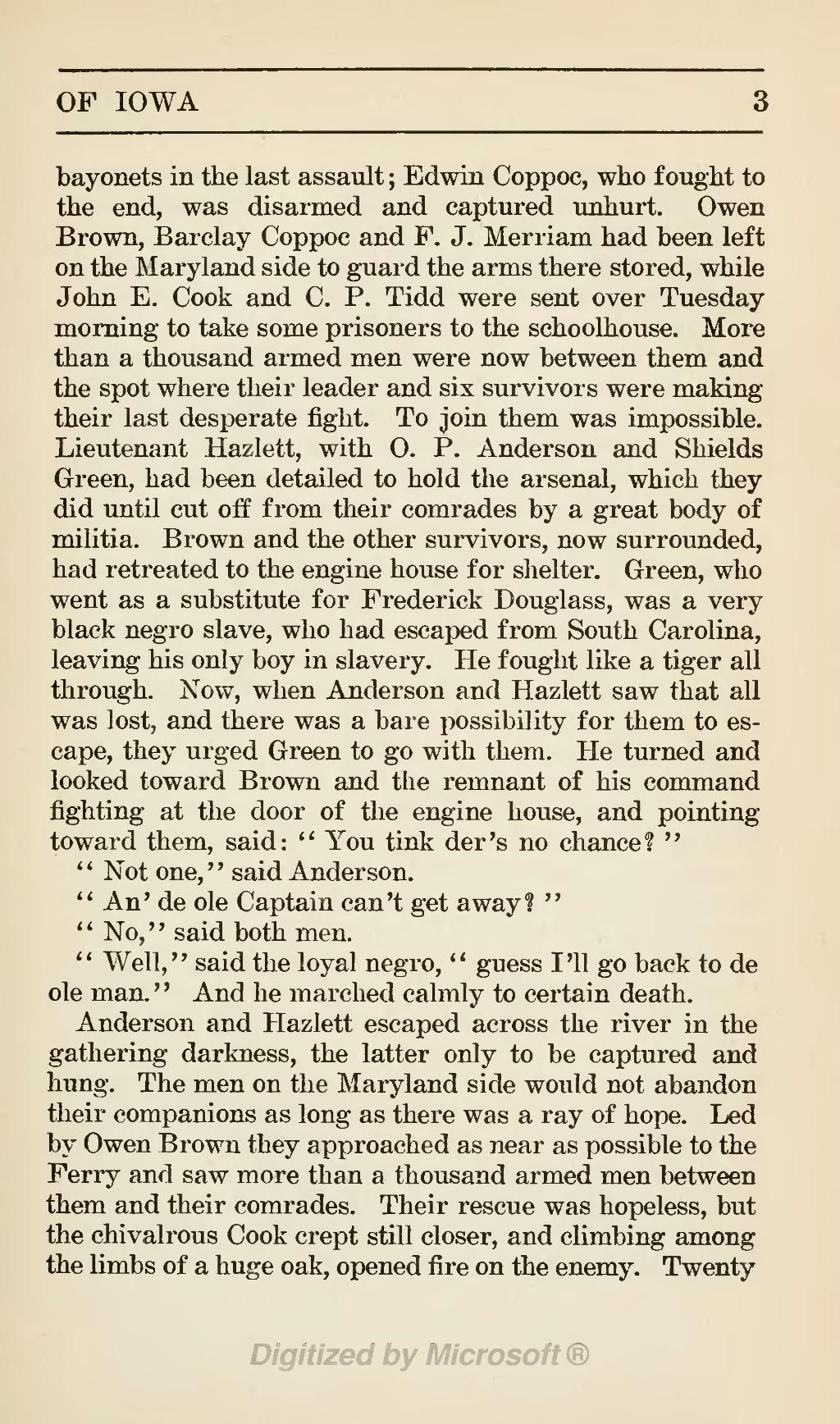bayonets in the last assault; Edwin Coppoc, who fought to the end, was disarmed and captured unhurt. Owen Brown, Barclay Coppoc and F. J. Merriam had been left on the Maryland side to guard the arms there stored, while John E. Cook and C. P. Tidd were sent over Tuesday morning to take some prisoners to the schoolhouse. More than a thousand armed men were now between them and the spot were their leader and six survivors were making their last desperate fight. To join them was impossible. Lieutenant Hazlett, with O. P. Anderson and Shields Green, had been detailed to hold the arsenal, which they did until cut off from their comrades by a great body of militia. Brown and the other survivors, now surrounded, had retreated to the engine house shelter. Green, who went as a substitute for Frederick Douglass, was a very black negro slave, who had escaped from South Carolina, leaving his only boy in slavery. He fought like a tiger all through. Now, when Anderson and Hazlett saw that all was lost, and there was a bare possibility for them to escape, they urged Green to go with them. He turned and looked toward Brown and the remnant of his command fighting at the door of the engine house, and pointing toward them, said: “You tink der’s no chance?”
“Not one,” said Anderson.
“An’ de ole Captain can’t get away?”
“No,” said both men.
“Well,” said the loyal negro, “guess I’ll go back to de ole man.” And he marched calmly to certain death.
Anderson and Hazlett escaped across the river in the gathering darkness, the latter only to be captured and hung. The men on the Maryland side would not abandon their companions as long as there was a ray of hope. Led by Owen Brown they approached as near as possible to the Ferry and saw more than a thousand armed men between them and their comrades. Their rescue was hopeless, but the chivalrous Cook crept still closer, and climbing among the limbs of a huge oak, opened fire on the enemy. Twenty
